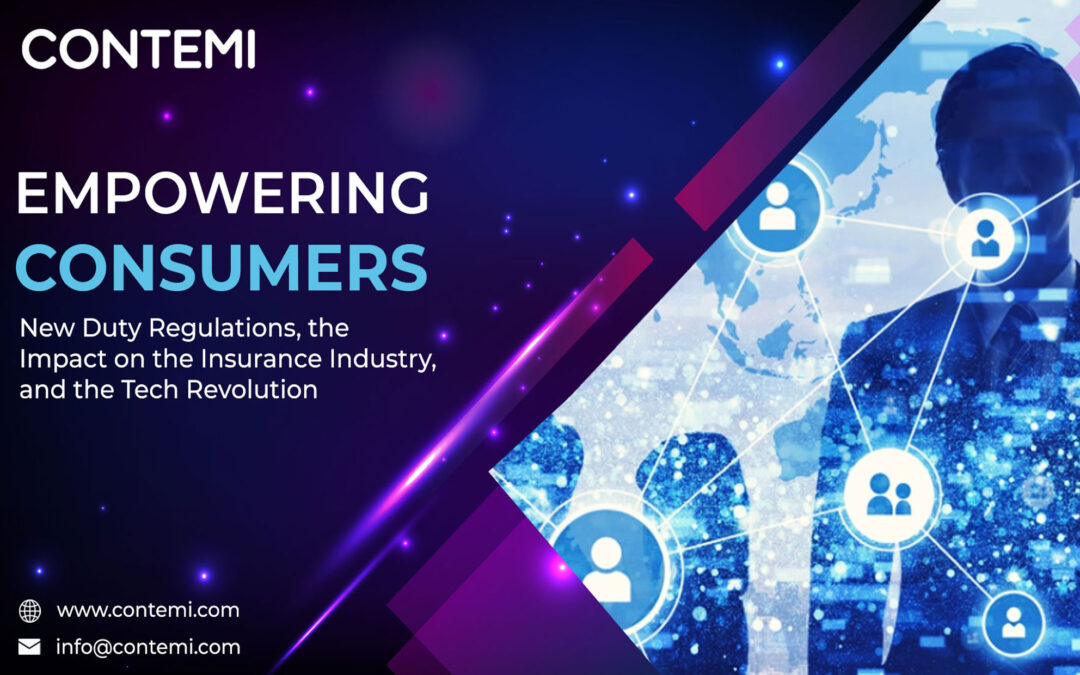New Consumer Duty Regulations
The Impact on the Insurance Industry, and the Tech Revolution
In today’s digital age, consumers wield unprecedented power and influence, often driving market changes through their choices and demands. Recognising this, governments and regulatory bodies are increasingly enacting new Consumer Duty regulations to protect and empower individuals.
Consumer Duty regulations encompass a broad range of laws and standards. Aiming at safeguarding the rights and interests of consumers in various industries.
What does it mean for the financial industry? The Financial Conduct Authority (FCA) states that financial good customers and avoid causing them foreseeable harm, enabling and supporting them to pursue their financial objectives.
These regulations are evolving to address contemporary challenges in areas such as data privacy, product safety, and ethical business practices. In effect, the Consumer Duty regulation should offer customers the support they need when they need it, and in a form of communication that they understand. Products and services should also meet their needs and offer fair value, while protecting consumer privacy at the same time.
Let’s explore some of the aspects that are key to this regulation for financial institutions.
DATA PRIVACY AND SECURITY
As a matter of fact technology has brought about an explosion of data, and with it, concerns about privacy and security. Advanced techniques, tokenisation, consent management and data anonymisation are all key technologies that help companies to comply with data privacy regulations while maintaining efficient operations.
PRODUCT TRANSPARENCY FOR CONSUMERS & SERVICES
Consumers have become increasingly conscious and require full transparency about the products they are purchasing. Regulations in this area are aimed at ensuring that the products on offer help customers to achieve their financial goals, promoting access to clear and truthful information.
All things considered insurance software solutions like Contemi’s Seamless.Insure provide flexibility and transparency in insurance products. Also a self- service portal to insurance customers – one that offers direct access to all relevant information. This can allow consumers to make an informed purchase decision, or provide clarification around what is included in their policy. Customers are also able to set reminders for themselves, or register a claim via this platform.
ENHANCING CONSUMER ENGAGEMENT
Technology is facilitating direct and meaningful engagement between consumers and insurance providers. Holistic access to relevant customer data allows for a positive, efficient experience in customer service. Furthermore, advancements in technology – like chatbots for customer service, and personalised marketing powered by Al- can contribute to more efficient consumer-business interactions.
Thus, technology is not just a supporting actor. It’s a catalyst for change, enabling the enforcement. of regulations and empowering consumers with greater transparency, control, and protection. Technology will also help companies to ensure and measure the value they deliver to their customers at every stage of the lifecycle.
Technology can:
- Guarantee the availability of clear and easy to understand information to prospective customers during the sales stage, through interactive and intuitive platforms available across all devices.
- Provide instant response to queries eg. through Al driven live chats.
- Make data collection easy through quick onboarding dashboards, reducing the need to enter repetitive data.
- Use comprehensive data collection and analysis systems. Along with robust risk assessment systems, all of which can quickly help underwriters to evaluate profiles and offer the right solution based on the specific needs of the consumer.
- Set up premium reminders.
Easily access all information available to the consumers, evaluating their policies and understanding the depth of their coverage. - Offer an intuitive claims system for customer support when they need it most.
- As we navigate this ever-changing landscape. The collaboration between governments, insurance businesses and technology innovators will be vital in achieving Consumer Duty objectives.












